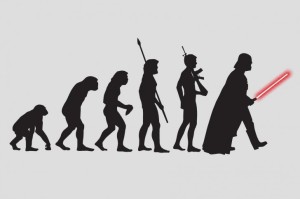 Many people distrust abstract philosophical ideas and ideals. There are a couple of related reasons for this: 1) They hold that abstract ideas “oversimplify” reality, ensuring that they always fail to properly capture it, and 2) They think that abstract ideas outside of the natural sciences are generally faith-based dogma, or “armchair” speculation. (In either case, this means they think the ideas are put forward without sufficient supporting evidence.)
Many people distrust abstract philosophical ideas and ideals. There are a couple of related reasons for this: 1) They hold that abstract ideas “oversimplify” reality, ensuring that they always fail to properly capture it, and 2) They think that abstract ideas outside of the natural sciences are generally faith-based dogma, or “armchair” speculation. (In either case, this means they think the ideas are put forward without sufficient supporting evidence.)
In regard to Number 1, I’d like to point out that all human concepts “simplify reality” in a sense: they all ignore differences between particular objects to focus on features common to a class of objects. For example, the concept “chair” refers to every particular chair you have ever encountered or will encounter. This means that it omits the countless differences between any two particular chairs. (Even if two chairs look identical at a macroscopic level, they almost certainly have countless differences at a microscopic level.) All other concepts function in a similar way: they ignore certain differences between things, for the sake of classifying them and integrating them into a single mental unit, represented by one word (“chair,” “dog,” etc.)
Yet the similarities that proper concepts such as “chair” capture are real and important, and it is not an oversimplification to say that all things called “chairs” (without qualification or modification) are made to allow someone to sit on them. Virtually no one accuses ideas about chairs of “oversimplifying reality”: Someone who speaks of chairs typically understands that he can always give more information about a particular chair by providing a description.
Classifying and simplifying reality by means of concepts is the human way of dealing with reality in thought, and it is very powerful, when done properly. Human beings have used the simplifying concepts of the natural sciences to cure diseases, increase food production per farmhand manyfold, extend the average human lifespan by over thirty years, build skyscrapers, and land on the moon. Furthermore, there is no reason to believe that simplifying concepts stop working at any level of abstraction (breadth of generalization) or at any level of complexity. The simple principles of Einstein’s relativity are highly abstract: they apply to all physical phenomena in the known universe, (when the scale under consideration is not too small) and to all the immense complexity of gravitational interactions between visible objects and light rays in galaxies. Continue reading


